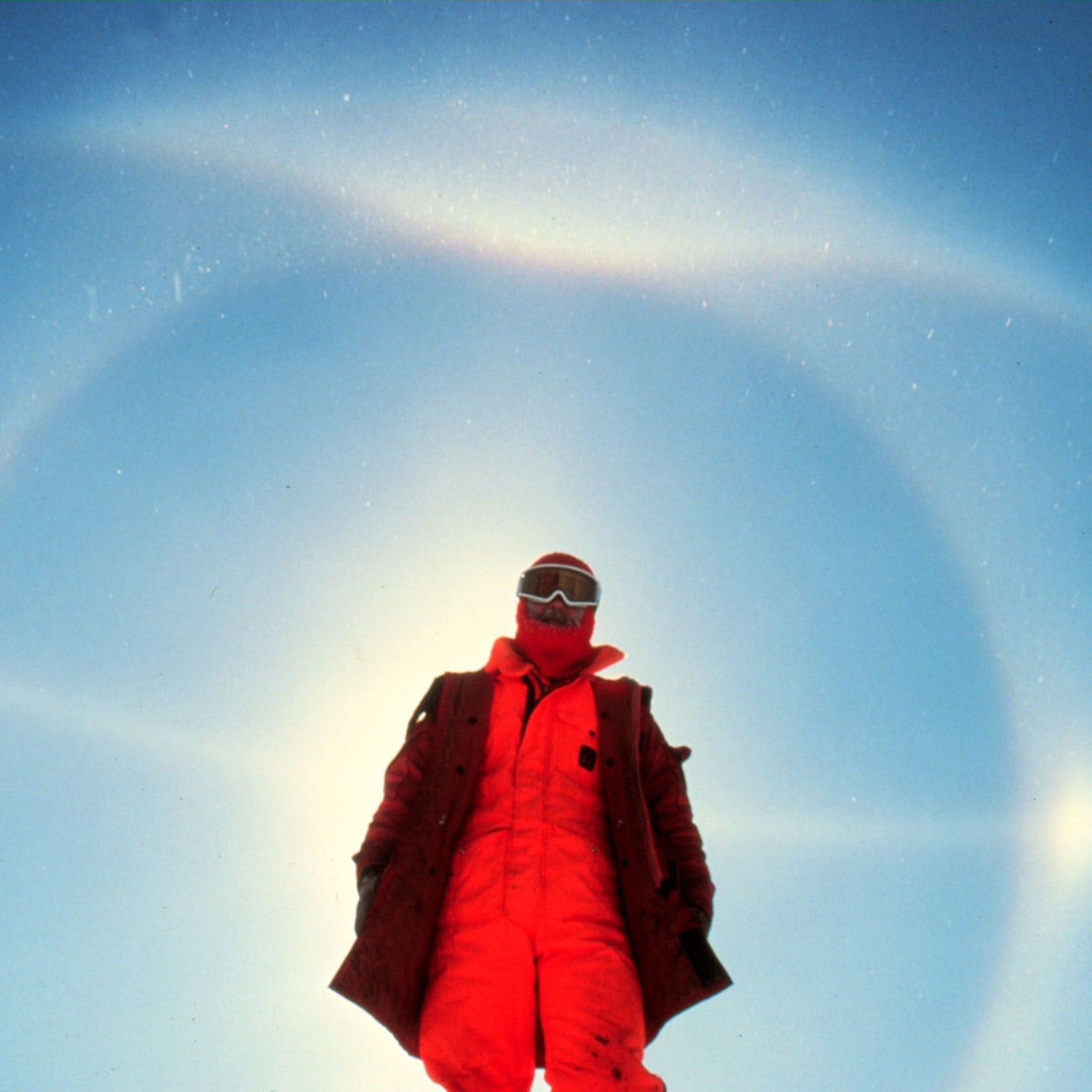Eric Larsen, the who recently attempted an unsupported speed ski trip to the South Pole, says his anxiety increases a hundredfold��when he’s on an expedition. “It’s hard to describe what it’s like, but it’s uncertainty about your outcome, your gear, and what the duration of your trip will be,” he says. “It’s death by a thousand cuts, because it wears down your spirits over a long time.”
Stephen Haddelsey, a British historian who last fall��published ,��a book about early polar exploration, says the early arctic explorers called that feeling polar madness.��They knew their temperaments changed during dark, cold��days, and they struggled with isolation, complicated team dynamics, and fear. It turns out they were also��often��dealing with what we now call seasonal affective disorder (SAD). Frederick A. Cook, the surgeon on the Belgica Expedition of 1897, the first to spend winter in Antarctica, wrote in his notes from the trip: “The human system accommodates itself sluggishly and poorly to the strange conditions of the polar seasons, and we, too, are slow in adapting ourselves to the awful despondency of the long winter night.”
We’ve learned a lot about the edges of the known world since then, but we’re still trying to figure out how to deal with the toll this kind of exploration takes on the psyche. Research on mental health in isolated and��environmentally harsh conditions is a developing field, but it promises insight into how humans might better cope with other extreme situations—like interplanetary exploration or��a sufferfest backcountry mission.
In the early 1900s, explorers were trying to understand who might be prone to depression��and how that might present itself on trips and impact teams. “They recognized early that in the long polar winters, people started behaving badly,” Haddelsey says. “They knew it was associated with dark winter, but they didn’t know it was physiological.” In those harsh environments, your body responds biologically to a lack of sunlight and a constant state of stress. Some people are more prone to negative psychological impacts, and Haddelsey explains that part of the struggle of managing depression and anxiety on those early trips was parsing out the difference between SAD and other kinds of mental-health problems—especially considering that at the time there was little scientific knowledge of either.��Ernest Shackleton, who led three expeditions to Antarctica, conducted his own crew interviews using a personality rubric for finding men he thought were self-reliant, intelligent, and calm. Now, modern explorers like Larsen track and monitor their mental health to sort out the same questions. But highly intelligent, independent, emotionally stable people still struggle with isolation and darkness, and there are no concrete rules for avoiding it, Haddelsey��says.
Research on mental health in isolated and��environmentally harsh conditions is a developing field, but it promises insight into how humans might better cope with other extreme situations—like interplanetary exploration or a sufferfest backcountry mission.
Nathan Smith, who studies the psychology of expeditions at the University of Manchester, says that the field has exploded since he began his research in 2013. Part of that is driven by NASA, which is funding research in Antarctica that it’ll apply to its work on Mars, because the Arctic can simulate conditions similar to space. Smith and his colleagues are evaluating how humans handle physiological and psychological challenges like cold, physical strain, and isolation, and developing strategies to mitigate their impact.
To do that, the researchers��created a series of questions about mental health and group dynamics for arctic expedition members to fill out daily. These expedition journals, like the most recent ones from two 13-person teams at , offered Smith an expedition-wide profile of emotional peaks and troughs, which enabled him and his team to identify their sources, quantify the emotional stress experienced throughout the expedition, and even start to predict behaviors.��
Smith says that when people report changes in emotion, they don’t tend to report huge swings, but even the slightest change can provide insight. “When you see a small spike and it’s moving in the direction of negative, it means a lot,” Smith says—especially when that shift is reflected across the board.
Expedition members often hold their emotions close, because they don’t want to burden their team.
He explains that expedition members often hold their emotions close, because they don’t want to burden their team. The diaries give them an outlet to air concerns, which largely turned out to be shared across the team. In extreme environments, people are often��preoccupied with thoughts of friends and family living a normal life without them, and the feelings grow when they lack privacy. Small triggers—like a frustrating project or a sense of inertia—can lead to bigger mental-health spirals, because the circumstances preclude common coping strategies, like restorative alone time.��
The researchers are building off past knowledge. While reading through old trip logs, Haddelsey found that factors he assumed would contribute to depression—like hard work and remoteness—positively influenced the crew’s disposition. It turns out that feeling like you’re part of a team, staying busy, and being able to focus on an engrossing task without outside distraction, are all good for the brain. “Those bases that have the poorest communication with the outside world have better mental health records,” he says.
Admiral John Ross, who spent several winters in the Arctic in the 1830s and is credited with locating magnetic north, worked hard to prevent his men from turning inward. He helped them stay engaged with their crew by staging amateur theater projects��and kept them busy with scientific work like meticulous record-keeping. These strategies “wouldn’t have prevented the onset of SAD, but it would have reduced it,” says Haddelsey.
Coping techniques haven’t changed much��from the early days of polar exploration. Larsen skips the base-camp vaudeville, but he starts his journeys as fit��as possible��to avoid physical challenges that might derail him psychologically. Once his trip is underway, he breaks it down into small��manageable parts��to avoid feeling overwhelmed by the sheer volume of time and space ahead of him. He’s also careful to balance positivity with realism. “At home, I’m an optimist off the charts, but the worst is when you have hope and it’s not realized. That emotional letdown really crushes you,” he says. (Larsen recently called off a solo speed attempt across the South Pole due to inclement weather and safety concerns.)
From a scientific perspective, Smith says that so far, there’s no single thing that wards off��the mental-health challenges presented by these environments. His research has shown that what he calls emotion-focused coping strategies,��or ways to reframe the situation and distract yourself, are among the most successful techniques. That might look like Larsen’s small��manageable goals—say, moving one ski past the other—or it might mean adopting a moving meditation, like using music or mantras to get out of your head. But the most critical factor, according to Smith, is something that Admiral Ross figured out on his own: when the situation grows dire, some action—even the wrong action—is better than no action. “If we perceive we have the ability to cope, we will respond adaptively,” Smith says. “When we’re overwhelmed, we shut down and stop trying.”


